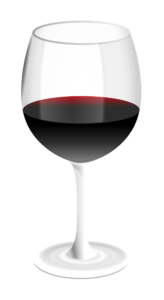Alcohol consumption and dementia have a complex relationship. And the landscape is changing.
In the past few years, research has been published suggesting:
- Red wine as part of the Mediterranean diet may lower dementia risk.
- Heavy drinking has been linked to increased dementia risk
- Recommended levels of safe alcohol consumption should be lowered.
French Study
Heavy alcohol consumption significantly increases dementia risk.
A large French study found that the risk for dementia was three times greater for individuals with a history of an alcohol disorder. In that study, 30 million people were part of a retrospective analysis. And for those who were diagnosed with early onset dementia, 57 percent had a history of alcohol problems.
Another factor will be the lifestyle of individuals who struggle with an alcohol disorder. Typically they will have poor nutrition and be socially isolated. These two factors can also contribute to dementia risk. However, the evidence is very strong that significant alcohol consumption is going to increase dementia risk.
Safe Alcohol Levels Lowered
The current UK guidelines advise limiting alcohol intake to 14 units a week for women and men. This is equivalent to drinking no more than 6 pints of average-strength beer (4% ABV) or 7 medium-sized glasses of wine (175ml, 12% ABV) a week.
These limits are much lower than most other countries. For example, Canada’s safe drinking guidelines recommend no more than two drinks a day, 10 per week for women, and three drinks a day, 15 per week for men,
The UK Approach
A meta-analysis of 83 studies from 19 countries helped shape UK policy on alcohol. This meta-analysis focused on longevity and looked at the impact of alcohol consumption on life expectancy. The meta-analysis showed that people who drank up to 12.5 units of alcohol a week had the lowest rate of death. For individuals who consumed above 37 units a week, the risk of death increased by more than 30 percent.
Increased alcohol consumption also impacted stroke and heart attack risk. For every additional 12.5 units of alcohol consumed stroke risk increased by 14 percent and heart attack risk by 6 percent. These are significant increases.
Thinking About Drinking
Some smaller neuroimaging studies have found a linear correlation between alcohol consumption and gray matter damage. So the more you drink, the greater the damage to the gray matter in your brain.
It is worth thinking about the amount of alcohol you are consuming and the effect it can have on brain health.
Life is for living and enjoying and as in everything balance is important. But the research shows that what we previously thought were safe levels for alcohol consumption are harming our brains.




0 Comments